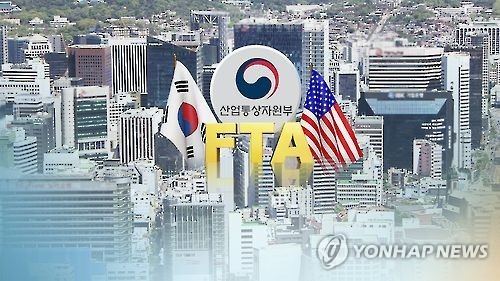Majority of Korean firms expect worse conditions, plan to cut investment in US
By KH디지털2Published : March 13, 2017 - 11:28
A majority of South Korean businesses in the United States expect additional difficulties down the road due to what many view as protectionist trade policies of the new US administration, a survey showed Monday.
More than 7 out of every 10 respondents said they were already facing difficulties in setting up new plans for their businesses and investments in the US, according to the Korea International Trade Association.

In the recent survey, jointly conducted by KITA and the Korea Chamber of Commerce in the US, 72 percent of those surveyed said they expected difficulties for their business and investment in the world's largest economy due to a rise in uncertainties following the election and inauguration of US President Donald Trump.
Only 11 percent of 250 respondents said they were not facing any additional problems, KITA said in a press release.
Most of the South Korean firms expressed concerns over the Trump administration's protectionist trade policies, with 82 percent of those surveyed saying Washington's new customs and import restrictions will likely have an adverse effect on their business.
A majority of respondents also expressed concerns over the proposed border adjustment tax and the US move to renegotiate or even scrap the North American Free Trade Agreement.
The new US administration's economic policies, on the other hand, are widely expected to benefit businesses based in the US, the survey showed.
More than half, or 58 percent of those surveyed, said eased business regulations will have a positive effect on the economy, while 72 percent of respondents singled out corporate and income tax reductions as the most positive development for US-based firms.
"Many are fearing a negative impact from a rise in uncertainties caused by a change in US policy under the Trump administration. Still, the companies are advised to rather turn it into an opportunity to grow by actively adapting to new changes, KITA said. (Yonhap)


![[AtoZ into Korean mind] Humor in Korea: Navigating the line between what's funny and not](http://res.heraldm.com/phpwas/restmb_idxmake.php?idx=644&simg=/content/image/2024/04/22/20240422050642_0.jpg&u=)
![[Exclusive] Korean military set to ban iPhones over 'security' concerns](http://res.heraldm.com/phpwas/restmb_idxmake.php?idx=644&simg=/content/image/2024/04/23/20240423050599_0.jpg&u=20240423183955)



![[Graphic News] 77% of young Koreans still financially dependent](http://res.heraldm.com/phpwas/restmb_idxmake.php?idx=644&simg=/content/image/2024/04/22/20240422050762_0.gif&u=)
![[Herald Interview] Why Toss invited hackers to penetrate its system](http://res.heraldm.com/phpwas/restmb_idxmake.php?idx=644&simg=/content/image/2024/04/22/20240422050569_0.jpg&u=20240422150649)





![[Exclusive] Korean military to ban iPhones over security issues](http://res.heraldm.com/phpwas/restmb_idxmake.php?idx=652&simg=/content/image/2024/04/23/20240423050599_0.jpg&u=20240423183955)



![[Today’s K-pop] Ateez confirms US tour details](http://res.heraldm.com/phpwas/restmb_idxmake.php?idx=642&simg=/content/image/2024/04/23/20240423050700_0.jpg&u=)